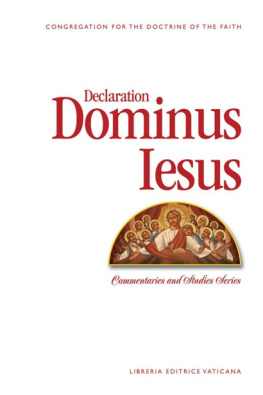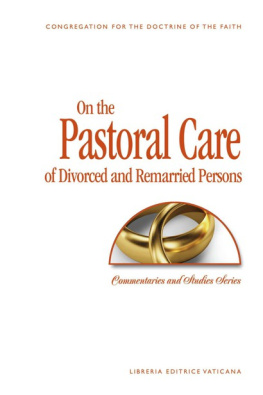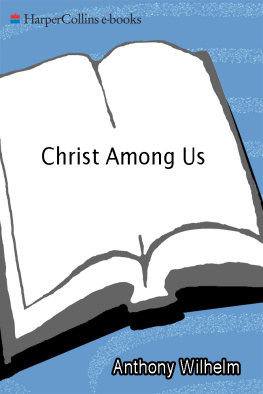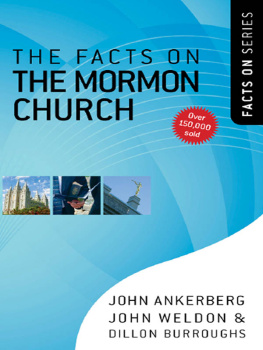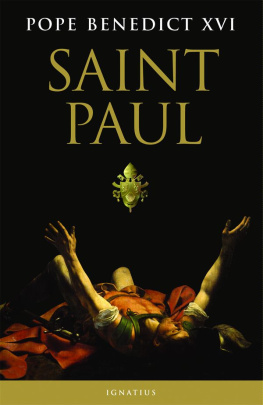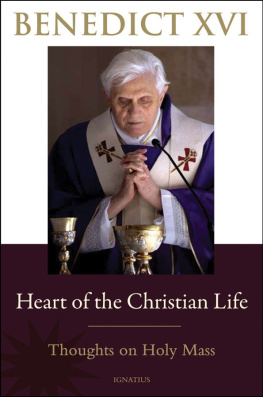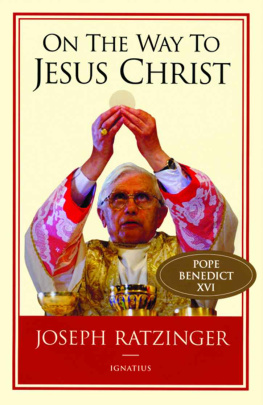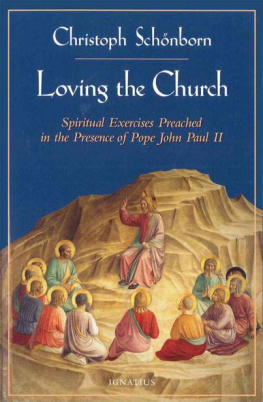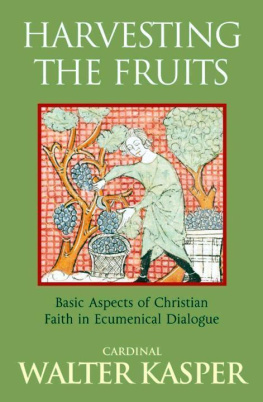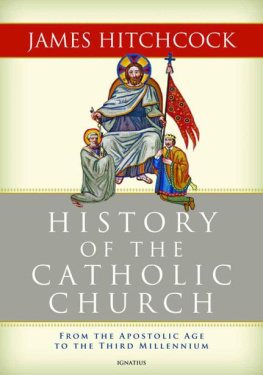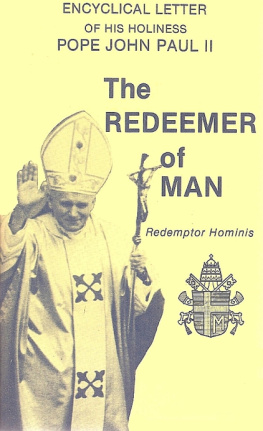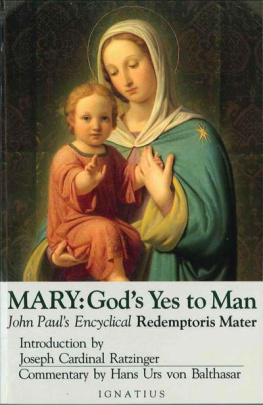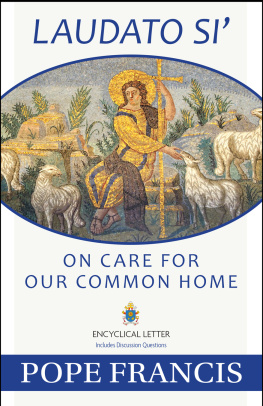Congregation for the Doctrine of the Faith
Declaration Dominus Iesus
Introduction
His Eminence Cardinal Joseph Ratzinger
Preface
His Excellency Archbishop Tarcisio Bertone
Declaration
Commentaries and Studies
A. AmatoF. OcarizR. FisichellaL. Ladaria
D. ValentiniN. BuxM. Dhavamony
Notification Regarding the Book by J. Dupuis Toward a Christian Theology of Religious Pluralism
Commentary
Libreria Editrice Vaticana
United States Conference of Catholic Bishops
Washington, DC
Contents
Introduction
The Context and Significance of the Declaration Dominus Iesus
Preface
The Literary Genre and Degree of Authority of the Declaration Dominus Iesus
Declaration Dominus Iesus
On the Unicity and Salvific Universality of Jesus Christ and the Church
General Presentation of the Christological Content of the Declaration
Fr. Angelo Amato, SDB
General Presentation of the Ecclesiological Content of the Declaration
Msgr. Fernando Ocariz
The Full and Definitive Nature of the Revelation of Jesus Christ
Rino Fisichella
The Incarnate Logos and the Holy Spirit in the Work of Salvation
Luis F. Ladaria
The Unicity and Universality of the Salvific Mystery of Christ
Angelo Amato
The Unicity and Unity of the Church
Donato Valentini
We Worship What We Know (Jn 4:22): Truth, Church, Salvation
Nicola Bux
The Church and the Religions in Relation to Salvation
Mariasusai Dhavamony
Foreword
The present volume reproduces the text of the Declaration Dominus Iesus: On the Unicity and Salvific Universality of Jesus Christ and of the Church , promulgated by the Congregation for the Doctrine of the Faith on August 6, 2000 (see Acta Apostolicae Sedis XCII [2000], 742-765).
As guidance for the reader, the text is preceded by an introduction by Cardinal Joseph Ratzinger, prefect of the dicastery, who describes the context and significance of the document, and by some considerations from its secretary, His Excellency Archbishop Tarcisio Bertone, on its literary genre and its value and degree of authority.
That is followed by a general presentation of the Christological and ecclesiological content of the declaration, written by Fr. Angelo Amato, SDB, and Fr. Fernando Ocariz respectively. After this are reproduced the articles published in LOsservatore Romano during the days following the publication of the document, which develop the main specific topics: The Full and Definitive Nature of the Revelation of Jesus Christ (His Excellency Bishop Rino Fisichella); The Incarnate Logos and the Holy Spirit in the Work of Salvation (Luis Ladaria, SJ); The Unicity and Universality of the Salvific Mystery of Christ (Angelo Amato, SDB); The Unicity and Unity of the Church (Donato Valentini, SDB); We Worship What We Understand (Jn 4:22): Truth, Church, Salvation (Nicola Bux); The Church and the Religions in Relation to Salvation (Mariasusai Dhavamony, SJ).
In this same volume, as a supplement to the declaration and to the related theological commentaries, it was thought appropriate to publish also the text of the Notification in Regard to the Book by J. Dupuis, Toward a Christian Theology of Religious Pluralism (Orbis Books, 1997), promulgated by the Congregation for the Doctrine of the Faith on January 24, 2001, and published in LOsservatore Romano on February 27, 2001, together with the authoritative commentary. This notification, although it addresses several topics specific to the work under consideration, nonetheless deals with the general subject of the relationship between Christianity and the religions, and between the Church and salvation.
It is worth drawing the readers attention to the article commenting on the notification, in part for a clarification of the tone and language used in both the Declaration Dominus Iesus and the notification on the book by Jacques Dupuis.
The doctrinal relevance and ecclesial importance of the Declaration Dominus Iesus are certainly unquestionable, not only because of the matters that are discussed in it, which constitute the core of the Catholic faith, but also because in the contemporary theological and ecclesial debate, marked in many ways by attention to ecumenical and interreligious dialogue, there are unfortunately many mistaken or confused ideas and opinions about the doctrine on the unicity and universality of the salvific event of Jesus Christ and on the unity and indivisibility of the Church (see the doctrine of subsistit in, Lumen Gentium , no. 8), which tend to relativize the revelation of Christ and his unique and universal mediation in the order of salvation, to deemphasize the necessity of the Church of Christ as universal sacrament of salvation, and to consider the unity of the Church not as an already existing reality, but only as a goal to be reached in the future. The notification on the book by Jacques Dupuis Toward a Christian Theology of Religious Pluralism also emphasizes how the Catholic doctrine on the preeminence and unicity of Jesus Christ and on the unicity of the Churchin terms of both the mystery of its indivisibility and the mystery of the salvation of all peopleis made problematic by certain seriously ambiguous formulations, which, regardless of the intentions of the author, can lead the reader to an erroneous or confused understanding of the doctrine in question.
Of course, the Declaration Dominus Iesus and the notification were not created to block healthy theological research, much less to weaken or diminish ecumenical and interreligious dialogue. They are instead a contribution of magisterial value, so that the identity of Catholic doctrine and of Christian life may be ever more fully understood and accepted by all Catholic believers, as the permanent and irreplaceable foundation of any authentic and genuine dialogue or encounter with Christians of other confessions, and, on a different level, with the followers of the religions of the world.
Congregation for the Doctrine of the Faith
Introduction
THE CONTEXT AND SIGNIFICANCE OF THE DECLARATION DOMINUS IESUS
It is my intention to limit myself to describing briefly the context and significance of the Declaration Dominus Iesus , while the essays that come after this one will illustrate the value and doctrinal authority of the document and its specific Christological and ecclesiological contents.
1. In the lively contemporary debate on the relationship between Christianity and the other religions, the idea that all of the religions are equally valid ways of salvation for their followers is making more and more headway. This persuasion is now widespread not only in theological circles, but also in increasingly large segments of public opinion, especially when this is most influenced by the cultural outlook now prevalent in the West, which can be defined, without fear of contradiction, as relativism.
What is called the theology of religious pluralism had been gradually taking hold since the 1950s, but it is only recently that it has taken on fundamental importance for the Christian conscience. Naturally, it is expressed in many different ways, and it would not be correct to group all of the theological positions based on religious pluralism into a single system. The declaration therefore does not even attempt to describe the essential features of such theological tendencies, much less presume to capture them in a single formula. Our document instead points out some of the philosophical and theological presuppositions that form the basis of the various theologies of pluralism most widespread today: the conviction that divine truth cannot be fully grasped or expressed; the relativistic attitude according to which what is true for some people is not true for others; the radical contrasting of the logical Western mentality and the symbolical Eastern mentality; the exaggerated subjectivism of those who consider reason the only source of knowledge; the metaphysical dismantling of the mystery of the incarnation; the eclecticism of those who use categories derived from other philosophical and religious systems in their theological reflection, without paying attention to their internal consistency or their incompatibility with the Christian faith; the tendency to interpret Scripture outside of the Tradition and Magisterium of the Church (see Dominus Iesus , no. 4).
Next page
